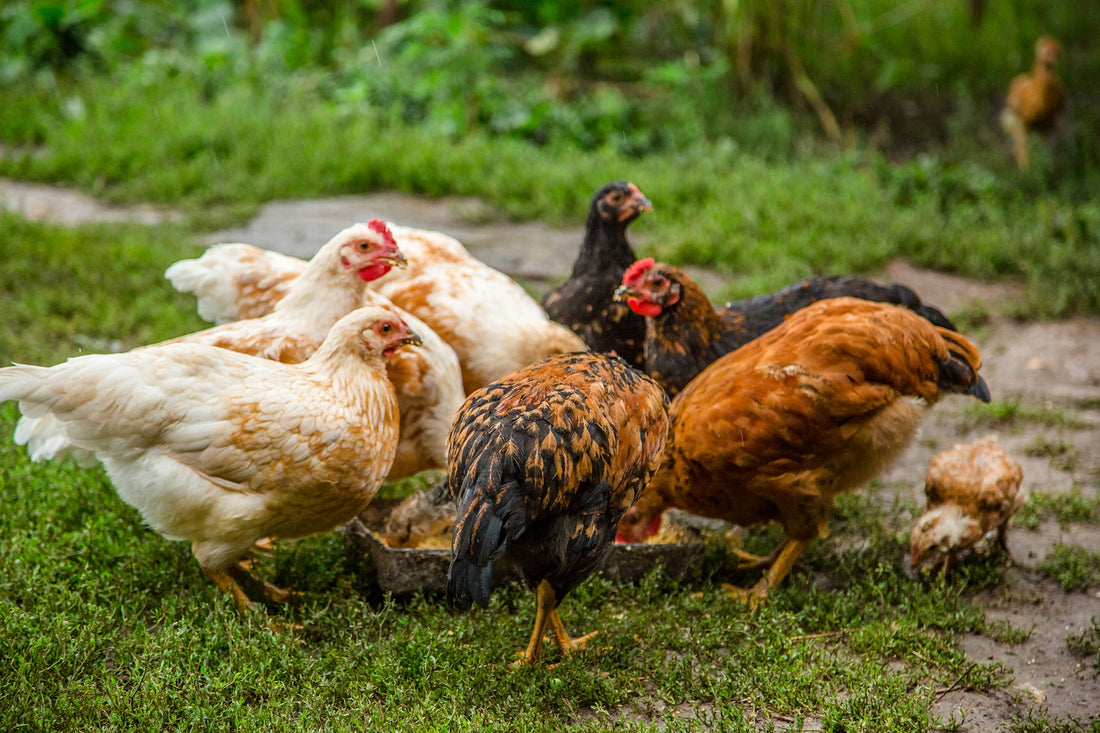Traveling with chickens can be an exciting adventure, whether it's a cross-country road trip or a short journey to a neighboring farm. However, returning home with your feathered companions requires careful planning and consideration to ensure a smooth transition back into the flock. In this guide, we'll explore essential post-travel care tips for reintegrating chickens into the flock, from quarantine protocols to socialization strategies.
- Quarantine Protocol: Protecting the Flock
Upon returning home from travel, it's crucial to implement a quarantine protocol to protect the existing flock from potential diseases or parasites that your traveling chickens may have encountered. Set up a separate quarantine area away from the main coop and run, ideally in a separate building or enclosure. Keep the newly arrived chickens isolated from the rest of the flock for a minimum of two weeks to monitor for signs of illness and prevent the spread of any pathogens. During this quarantine period, observe the traveling chickens closely for any symptoms of disease or stress, and consult with a veterinarian if necessary.
- Health Assessment: Monitoring for Signs of Illness
While in quarantine, conduct regular health assessments of the traveling chickens to ensure they are adjusting well to their new environment and are free from any signs of illness. Monitor their appetite, behavior, and overall appearance for any abnormalities, such as lethargy, coughing, sneezing, or diarrhea. Check for external parasites such as mites or lice, which may have been picked up during travel. Keep detailed records of any observations or concerns and seek veterinary assistance if you notice any signs of illness or distress.
- Gradual Integration: Slow and Steady Wins the Race
After the quarantine period has elapsed and the traveling chickens have been cleared of any health concerns, it's time to initiate the process of reintegrating them into the flock. Take a gradual approach to integration, allowing the chickens to acclimate to their new surroundings and flockmates at their own pace. Start by introducing the traveling chickens to a small group of calm and friendly flock members in a neutral territory outside of the main coop and run. Monitor their interactions closely for any signs of aggression or bullying, and intervene if necessary to prevent injury.
- Supervised Socialization: Building Bonds
Supervised socialization sessions are essential for fostering positive relationships between the traveling chickens and the existing flock members. Spend time observing their interactions and intervening as needed to prevent conflicts or aggression. Provide plenty of space and resources, such as food, water, and shelter, to minimize competition and reduce stress. Gradually increase the duration and frequency of socialization sessions as the chickens become more comfortable with each other. Be patient and allow sufficient time for the chickens to establish their pecking order and develop a harmonious hierarchy within the flock.
- Monitoring Behavior: Keeping a Watchful Eye
Throughout the integration process, closely monitor the behavior of both the traveling chickens and the existing flock members for any signs of aggression, stress, or injury. Pay attention to body language, vocalizations, and social dynamics within the flock. Look for indicators of bullying or ostracism, such as pecking, chasing, or feather-plucking, and intervene promptly to prevent escalation. Provide additional hiding spots or barriers within the coop and run to allow subordinate chickens to escape from aggressive flock mates if needed. Regularly assess the overall health and well-being of the flock and address any concerns promptly to maintain a harmonious environment.
- Providing Enrichment: Keeping Chickens Busy
Offering enrichment activities can help reduce stress and boredom during the integration process and promote positive interactions between flock members. Provide environmental enrichment such as perches, roosts, dust bathing areas, and foraging opportunities to keep chickens physically and mentally stimulated. Scatter treats or scratch grains throughout the coop and run to encourage exploration and socialization among the flock. Consider hanging boredom busters such as cabbage or lettuce heads for chickens to peck at and play with. By providing enrichment, you can help alleviate tension and facilitate bonding between the traveling chickens and their new flock mates.
- Maintaining Routine: Stability is Key
Maintaining a stable and predictable routine is essential for reducing stress and promoting a sense of security among the flock members during the integration process. Stick to a consistent feeding schedule and provide access to clean water and fresh bedding daily. Keep the coop and run clean and well-maintained to minimize the risk of disease and promote overall hygiene. Avoid making significant changes to the flock's environment or management practices during the integration period, as this can disrupt social dynamics and increase stress levels. By maintaining routine and stability, you can help facilitate a smooth transition for the traveling chickens as they adjust to life back home.
- Patience and Persistence: Nurturing Relationships
Above all, patience and persistence are key when reintegrating chickens into the flock. Allow ample time for the chickens to establish their place within the hierarchy and form bonds with their new flock mates. Be prepared for setbacks and challenges along the way, such as minor skirmishes or temporary disruptions in social dynamics. Stay vigilant and proactive in addressing any issues that arise, and remain committed to nurturing positive relationships within the flock. With patience, persistence, and careful management, you can successfully reintegrate traveling chickens into the flock and create a harmonious and cohesive poultry community.
A Seamless Reintegration
Reintegrating chickens into the flock after travel requires careful planning, patience, and persistence. By following a quarantine protocol, conducting health assessments, and gradually integrating the chickens into the flock, you can minimize the risk of disease transmission and promote positive social interactions. Providing supervised socialization, enrichment activities, and maintaining a stable routine are essential for fostering bonds and reducing stress during the integration process. With diligence and dedication, you can ensure a seamless reintegration for your traveling chickens and create a cohesive and harmonious poultry flock.

